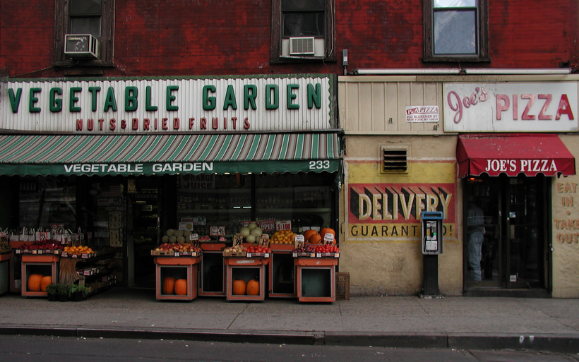Justice Center News
The Justice Center News blog features our advocacy on issues affecting low-income New Yorkers today and the latest CBJC happenings. For press releases, click here. For publications, click here.

Helping NYC Small Businesses Survive Through and After the Pandemic
by Akira Arroyo, Esq. October 5, 2020
More small businesses in New York City have permanently closed since March 1, than in any other large American city. According to a report by the Partnership for New York City, when the pandemic eventually subsides, roughly one-third of the city’s 240,000 small businesses may never reopen, having already shed 520,000 jobs. As New York continues to slowly open its doors with the threat of an economic crisis looming ahead, the Neighborhood Entrepreneur Law Project (NELP) is determined to continue developing efforts to level the playing field for small businesses as they struggle to recover from the pandemic.
In March 2020, during the height of the pandemic in New York City, NELP in partnership with Lawyers for Good Government and Kirkland & Ellis, LLP, provided immediate relief to small businesses that had been adversely impacted through the COVID-19 Remote Small Business Legal Clinic (CV-19 Clinic). The CV-19 Clinic offered free legal consultations to small business owners to help them understand and act upon opportunities available through federal, state, and local programs as new services and resources became available. Pro bono attorneys also provided entrepreneurs with answers to their broader questions on circumstances surrounding the pandemic. Between March and August 2020, through the CV-19 Clinic, NELP provided legal assistance to 988 small businesses with the generous support of 895 volunteers.
Frequent issues that came up included concerns with regards to contracts and force majeure clauses, employment, insurance and commercial leasing. However, most of the questions revolved around grants and loans under the CARES Act with particular attention on the Paycheck Protection Program (PPP) and the Economic Injury Disaster Loans (EIDL) and how the two disaster financing programs worked together. PPP and EIDL helped small businesses stay afloat momentarily, but funds ran out quickly and small businesses soon became desperate to learn about other types of financial assistance to help pay for essential operating costs such as rent and payroll.
Due to overwhelming demand and limited funding, government programs stopped accepting applications. However, a second round of funding to support the PPP & EIDL programs became available and with that the program reopened and the rules around eligibility and loan forgiveness changed. The rapid development of these programs left many of the finer details to be worked out, leaving questions unanswered, and caused confusion for small businesses trying to understand how to use PPP or EIDL funds in order to maximize loan forgiveness. Other concerns included whether it made sense for certain types of small businesses, such as sole proprietorships, to apply for PPP and EIDL loans or if they should continue to collect Pandemic Unemployment Assistance (PUA) to cover their income losses.
Rent and mortgage fees remained the same despite the financial toll the pandemic had on entrepreneurs with small storefront businesses and offices. As a result, commercial leasing is a major issue of concern today as many businesses remain closed and those who have been able to reopen, are operating at significantly reduced capacities. The CV-19 Clinic has provided legal advice and guidance to commercial tenants who have been unable or struggling to make payments to their landlords in order to avoid shutting down their businesses or being evicted.
One thing that remains unchanged for small business owners during these difficult times is their ability to meet adversity with resiliency. Entrepreneurs have shown us that they are not only determined to survive the pandemic, but also committed to rebuilding thriving small businesses. As new issues emerge, NELP is committed to tailoring its remote legal services to serve small businesses as they recover from the pandemic through interactive legal clinics, informational presentations, and direct pro bono assistance for entrepreneurs who are eligible for longer term support.
If you are in search of small business legal assistance, please contact NELP by calling 212-382-6633 or email nelp@nycbar.org.
Akira Arroyo, Esq. is the Director of the Neighborhood Entrepreneur Law Project.
Recent posts
-
September 16, 2024
New York State Strengthens Homeowner Protections with New Deed Theft Law
On July 19, 2024, new legislation passed that provides homeowners with additional deed theft protections. W...
Read more -
September 10, 2024
A Season of Growth: Summer Interns Share Their Justice Center Experience
The City Bar Justice Center is pleased to wrap up another successful summer internship program with 13 exceptional...
Read more -
June 11, 2024
NELP and Partners Serve 40 Small Business Owners For National Small Business Month
In honor of National Small Business Month 2024, the City Bar Justice Center’s Neighborhood Entrepreneur Law Proj...
Read more














